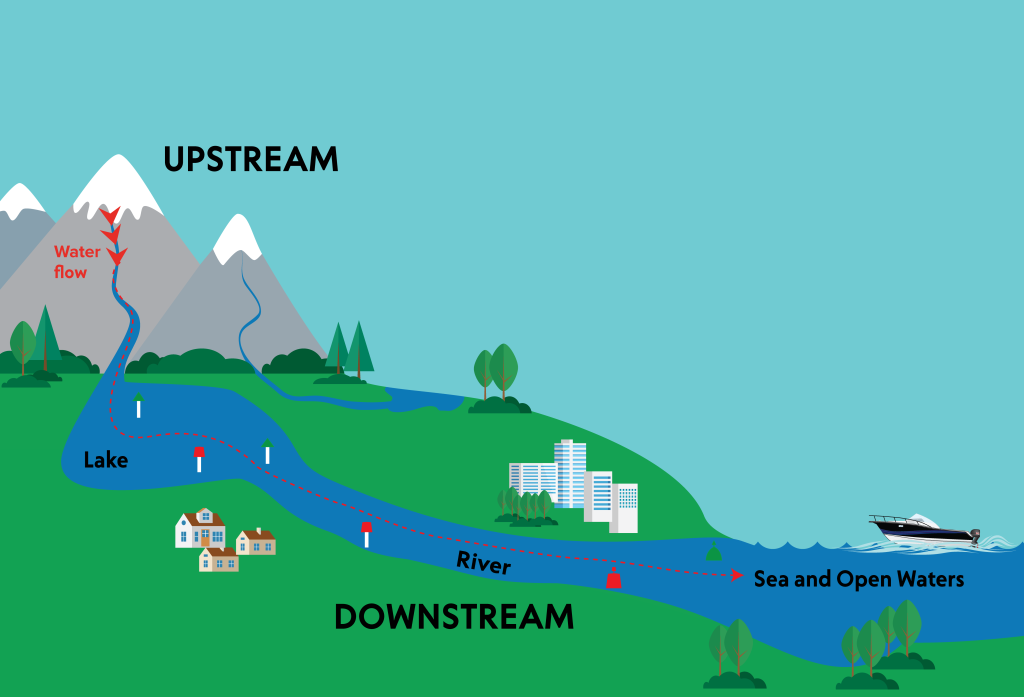
Bio-chemistry is upstream of everything
Bio-chemistry is upstream of your success in life including your performance at work, promotions and career change…all of which are easier when you are full of energy and confidence.
Your bio-chemistry dictates your health, your energy levels and your ability to do hard things.
Your bio-chemistry determines your lived experience. It acts as the prism through which you see the world.
Thus problems with your underlying bio-chemistry can manifest as low mood, low energy and burnout.
Back to the dopamine problem
We can not talk about bio-chemistry and mood, without a brief reminder of the importance of dopamine.
Dopamine is the The Molecule of More and it feels good. Dopamine is the neurotransmitter responsible for motivation, desire, pursuit, movement and drive.
So if you have a problem with motivation, you probably have a dopamine problem.
Here are the signs of a burned out dopamine system:
- procrastination: you don’t do The Thing
- you can’t finish a book
- continual doom-scrolling, surfing and flitting online
- inability to access a flow state
- low libido
- inability to focus
- mood swings
- anxiety
The good news is that these symptoms are all fixable if you address the root causes (sleep, circadian rhythm, diet, exercise, relationships and emotional connections).
The excess consumption of any cheap thrill (junk food, gambling, drugs, alcohol, shopping, porn, social media etc) can burn out your dopamine system and lead to a state of listless demotivation. This explains a lot about the modern world.
What role does career play in depression?
Burnout, depression and anxiety can be complicated.
So this focus on bio-chemistry (and lifestyle choices) is not to say that depression doesn’t have a range of contributory factors, the exact mix of which will vary between different people. Obviously there are a range of factors that contribute to depression.
This includes your career choice and how you feel about your work.
Do you feel like you are learning? Do you feel like you are paid your market worth? Do you feel like there is a purpose to what you do…even if it’s just supporting a family (I don’t mean to downplay this – it’s actually a really big deal).
I’m currently reading Tell Yourself A Better Lie by Marissa Peer (a therapist & counsellor) who has this to say on the subject:
In my experience, I have found that there are generally three broad reasons people experience depression…
The first is not following a person’s heart or desire. Countless times I’ve met with clients who dreamed of being an actor or musician in their lives but, for whatever reason, ended up doing something else.
While their lives may look more than adequate on the surface, they have a strong conviction inside of them that they were meant to do something else. Until they heed that, it’s difficult for them to feel like they are fulfilling their lives or ever will.
While having a strong calling and denying it is one manifestation of this cause, it can be more prosaic than that too. Too many people in the modern world have jobs where they don’t feel like they have any agency or make any impact on their community or the people around them.
These kind of jobs – where people spend their time day in, day out without any real tangible outcome for their efforts – can certainly cause depression too. We can’t spend the majority of our lives doing things that don’t bring any satisfaction or meaning and not expect to pay a price.
Of course, this doesn’t mean that everyone has to become an actor or musician. Indeed being a hairdresser, builder or driver can bring great satisfaction is workers are treated well and feel like they have a connection to the people and community they serve or work for.
Marissa Peer : Tell Yourself A Better Lie
This is not wrong.
The problem is that the supply of wannabe artists, footballers, popstars, musicians, poets and novelists greatly exceeds the demand for their services. Observe the queues around the block of hopefuls for the auditions of “Britain’s Got Talent” and similar.
This is one reasons why “Just Follow Your Passion” can be such bad advice for young people.
What if they are passionate about being a singer…but can’t sing? (most talent show entertainment relies on this unfortunate paradox).
And how would the average 21 year old even know what their true passion is?
What is my solution?
Maybe we have to spend some years toughening up? Maybe we have to spend some years doing a job that isn’t our dream or our passion? Maybe the passion comes later (e.g. via a side-hustle) as we find our way and build skills, experience and mastery?
But if you are doing a job that doesn’t feed your soul, it is VITAL that you don’t fritter the money away on fleeting dopamine hits (see above).
If you are doing a job for the money (most of us), then it’s vital that you create a surplus and put that money to work in your compounding machine. This buys you options in the future:
- Having a cash emergency fund means being able to wait say 3-6 months for a good job to come around after you get laid off, rather than having to take the first one you find. That can be life changing.
- Having some investments means you are getting off the back foot and onto the front foot in life. Now there is no reason to be terrified of your boss. Paradoxically, that will likely make you more confident and better at your job and thus less likely to lose it.
- Being mortgage free means the ability to make a career change or take a job with lower pay but flexible conditions. A job where you can work from home or a job with a shorter commute etc.
- And then there’s having enough to be able to quit working and pursue your passions.
Working towards a purpose and using your money to buy freedom and options have benefits that luxury goods can’t compete with.
Why Men Have Midlife Crises
For me, the takeaway of all this is to build career capital, don’t waste money on consumerist crap and learn how to invest your own portfolio to build a freedom fund.
But changing job / career is obviously a much faster way to escape a job you hate than pursuing financial independence.
The risk for people pursuing financial independence before making a big, scary career change is that they are leaving it too long. They may get stuck trying to eliminate all the risk before making a change. Fear and a scarcity mindset will do that to you.
There comes a point where your time runs out. A point where gratification is not just deferred, it’s lost.
I was struck recently by this video which attempts to answer the question of why men have midlife crises:
How do you know if it’s time to make a change?
How do you know if you are depressed…or just temporarily burnt out?
How do you boost your energy levels to get braver and help you shine at interviews?
How do you know when you have enough? How do you know when it is time to pursue your passion?
Good questions!
Those are questions you should be asking when you are thinking about looking for a new job or career change.
Love to everyone
Barney
This article was first published on Substack – subscribe to get emailed new articles as soon as they come out.




Great article. The Orion Taraban video felt eerily relevant!
[…] Do So Many People Hate Their Jobs? (The Escape Artist) – “Your bio-chemistry determines your lived experience. It acts as the prism through […]
[…] Why do so many people hate their jobs? [The Escape Artist] — “If you are doing a job that doesn’t feed your soul, it is vital that you don’t fritter the money away on fleeting dopamine hits (see above). If you are doing a job for the money (most of us), then it’s vital that you create a surplus and put that money to work in your compounding machine. This buys you options in the future.” […]